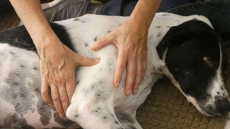For army families who live in combat zones, giving each other time and space is the first step towards rekindling romance when the spouse returns home with post-traumatic stress symptoms, finds a study.
As a couple, strategies include going with the flow, opening your heart, becoming best friends, maintaining trust and communicating effectively, says the study.
"This research contributes to the literature by providing a glimpse into the lives of army couples who have succeeded in keeping their relationship strong in the face of deployment separation and post-traumatic stress symptoms," said lead author Kristal Melvin from John Hopkins University's school of nursing.
For participants as individuals, it is important to allow negative emotions to do the work of rediscovery and accept a changed reality and to recognise and address the individual needs of the other, she noted.
As families, it is helpful to normalise schedules and protect family time.
Post-traumatic stress symptoms (PTSS), occurring in 15 percent of combat-exposed military personnel, are associated with a decrease in couples' relationship quality.
In a mixed-methods case study of army couples with a history of combat deployment, researchers used existing quantitative data to define sampling boundaries, select cases and guide interviews.
Couples scoring high on functioning, resilience and mutual satisfaction were interviewed.
"Continued investigation of family-promoting strategies, such as those discovered in this study, provides opportunities to educate and support other couples facing military deployment separation or similar challenges," the authors noted.
The study appeared in the journal Research in Nursing & Health.





